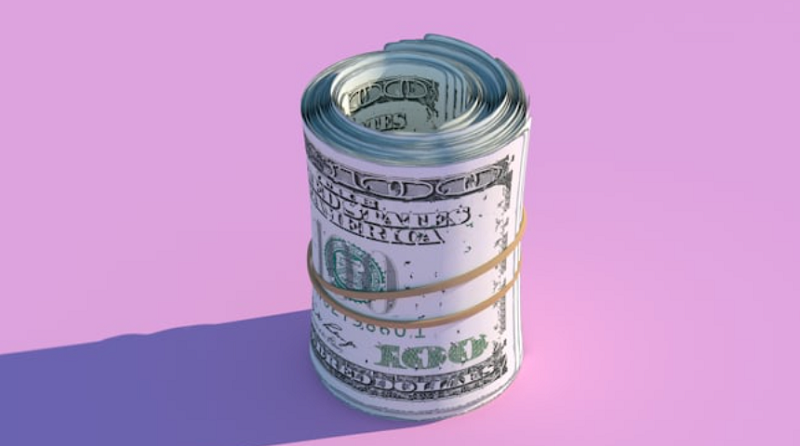Gone are the days of waiting in line at the bank or sifting through paper statements to figure out where your money’s going. In 2025, digital banking tools are flipping the script, putting control of your finances right in your pocket.
From budgeting apps to real-time credit monitoring, these tools are making it easier than ever to save, invest, and plan for the future. They’re not just convenient—they’re a straight-up revolution for anyone chasing financial freedom. Here’s why digital banking tools are changing the game and how they’re helping people take charge of their money.

Your Money, Your Rules
Digital banking tools hand you the reins like never before. Apps like Chime, Ally, or your bank’s mobile platform let you check balances, pay bills, or move cash between accounts in seconds, no branch visit required. Want to split a dinner bill? Venmo or Zelle can do it in a tap. This instant access means you’re always in the know, making smarter choices without the hassle.
Take a freelancer juggling gig payments. They can use their bank’s app to track income, set aside taxes, and pay vendors on the go. It’s not just about ease—it’s about feeling in control. Forbes says over 80% of Americans now use mobile banking, and that’s because it fits how we live—fast, flexible, and on our terms.
Budgeting Made Simple
Sticking to a budget used to mean spreadsheets and guesswork, but digital tools are making it a breeze. Apps like YNAB or Mint pull your transactions in real-time, sorting them into categories like groceries or rent. They flag overspending and even suggest tweaks to keep you on track. It’s like having a financial coach who’s always awake.
A barista saving for a car might use a budgeting app to see that they’re spending too much on takeout. By cutting back, they hit their goal faster. These tools turn vague money goals into clear plans, helping you stretch every dollar. For folks starting out or rebuilding, this kind of clarity is a lifeline to financial freedom.
Credit Scores at Your Fingertips
Your credit score can make or break big moves like buying a house or getting a loan, but keeping tabs on it used to be a chore. Now, digital tools, which are a Credit Karma alternative that is much better, let you check your score anytime, often with tips to boost it. Many banks bake this into their apps, so you’re not hunting for answers.
Imagine a recent grad with student loans. They use their bank’s credit tool to track their score, pay bills on time, and lower their credit card balance. Over months, their score climbs, landing them a better rate on a car loan. Knowing your score and how to improve it isn’t just empowering—it’s a direct path to better financial deals.
Investing Without the Intimidation
Investing used to feel like a rich-person thing, but digital tools are tearing down that wall. Apps like Robinhood, Acorns, or Wealthfront let you start with pocket change, buying fractional shares or setting up auto-investments. They explain terms in plain language and often use AI to suggest portfolios that match your goals.
A teacher with $50 to spare might toss it into a robo-advisor app, watching it grow over time. These tools make wealth-building accessible, not scary, letting everyday people dip their toes into stocks or ETFs. Forbes notes that micro-investing apps have surged, with millions using them to build long-term wealth, one small deposit at a time.
Security That Keeps Up
Worried about hackers? Digital banking tools are stepping up with serious security. Biometric logins like Face ID, two-factor authentication, and real-time fraud alerts are standard now. If your card’s used somewhere sketchy, your bank’s app might freeze it and ping you instantly. Some even let you lock your card between uses.
A small business owner traveling for work could get an alert about a weird charge, block their card, and sort it out in minutes—all from their phone. This peace of mind lets you focus on your goals, not stress about scams. Banks are also using AI to spot fraud faster, keeping your money safer than ever.
Breaking Down Barriers
Digital tools are a big win for people who’ve been left out of traditional banking. Rural folks, low-income households, or those without easy access to branches can now manage money through their phones. Apps like Varo or Dave offer no-fee accounts and small advances, helping people avoid predatory payday loans. For underserved communities, this is huge—financial freedom isn’t just for city dwellers with big bank accounts.
A single parent in a small town might use a digital bank to dodge overdraft fees and save for their kid’s school supplies. These tools level the playing field, giving everyone a shot at stability and growth.

The Catch: Staying Disciplined
It’s not all perfect. Digital tools make spending as easy as saving, so you’ve got to stay sharp. Notifications can help, but impulse buys are still a trap. Privacy’s another thing—some apps track your habits to sell ads, so read the fine print. Pick tools from trusted banks or apps with clear privacy policies to keep your data safe.
Why It’s a Game-Changer
Digital banking tools are rewriting the money game, giving you power over your finances like never before. Budgeting apps keep you on track, credit trackers open doors, and investing platforms build wealth—all from your phone. They’re breaking barriers, beefing up security, and making financial freedom feel within reach, whether you’re a student or a side-hustler.
In 2025, these tools aren’t just nice-to-haves—they’re your ticket to calling the shots with your money. They turn big dreams, like owning a home or traveling the world, into plans you can actually pull off. By putting control in your hands, digital banking’s not just changing how we manage money—it’s changing how we live.
